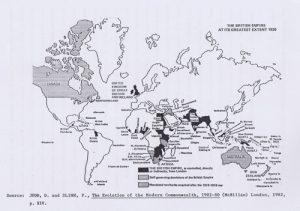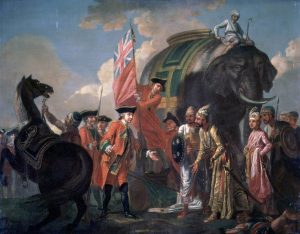American Anti-Colonialism, and the Liquidation of the British Empire.
Very few statesmen shared the apprehension of the Annual Register which in 1867 precisely warned that if the British neglected ‘the arena of industry and commerce’ then the country would be lost, ‘not perhaps to the extent of being conquered and reduced to province, but undoubtedly to the extent of having to give up the lead and ceasing to be a first-rate power’.”21 Even the approach of the so-called Great Depression in the 1870s did not change the attitudes of the political elite. All Liberals and most Conservatives led themselves to believe that free trade was best; and, even if more calculating Tories, like Lord Randolph Churchill, watched the ‘Fair Trade’ agitation with interest, he soon concluded that protectionism was an electoral loser. Too many sectors of the economy saw the global market as so important that any attempt to return to high tariffs would be viewed by the political elite and newspaper editors as challenging nature’s law.
Nevertheless, it could be said that in a way Britain’s decline was inevitable. This is to the fact that one should always remember that “The other countries would not remain permanently retarded by the deleterious effects of those eighteenth century wars, or stay constantly weak by internal conflicts. It was still less to be expected that Britain would remain eternally the only or even the greatest industrialised nation when others, with larger populations, and more resources, took the same path.”22 “As Professor Mathias has put it, ‘when half a continent starts to develop then it can produce more than a small island.’ “23
Around the turn of the century evidence of Britain’s decline became more visible. In 1870, for example, the United Kingdom still contained 32% of the world’s manufacturing capacity, this was down to 15% by 1910; and while its share of the world trade was 25% in 1870, by 1913 this had shrunk to 14%.
However, the political elite did not usually concern themselves in any intimate way with economic trends. Their anxieties in most cases were triggered off by feeling of shock and dismay at political challenges, such as the acquisition of colonies by other powers, or the heightened pace of warship-building by foreign rivals. But military-political power and industrial wealth are closely connected. The famous editor of The Observer newspaper J. L. Garvin, put the fact this way, that “power was relative, and that such power ultimately depended upon a nation’s resources and industrial efficiency. If, therefore, the period 1870-1910 saw a two-fold British superiority over Germans produced more than twice as much as the British, then it was most surprising that Britain should come under pressure from Germany in the field of power-politics as well.”24
As Britain’s dominance in the world’s industrial output and trade gradually diminished she found it increasingly difficult to keep up with the cost of maintaining a military force at a standard which would be capable of defending the British sea communications and counter-balance forces possessed by political enemies. “The most remarkable feature of the post-1815 Pax Britannica was its cheapness. Apart from several short-lived ‘scare’ periods, the naval budget during the early and middle parts of Victoria’s reign averaged around £7 million to £8 million per annum – a reasonable insurance policy for a position of unmatched global pre-eminence. The army tended to be rather more expensive (in 1870 it cost £13.4 million as opposed to £9.8 million for the navy), but even in that year the total defence budget worked out at 14s.9d. per head of the British population.”25



